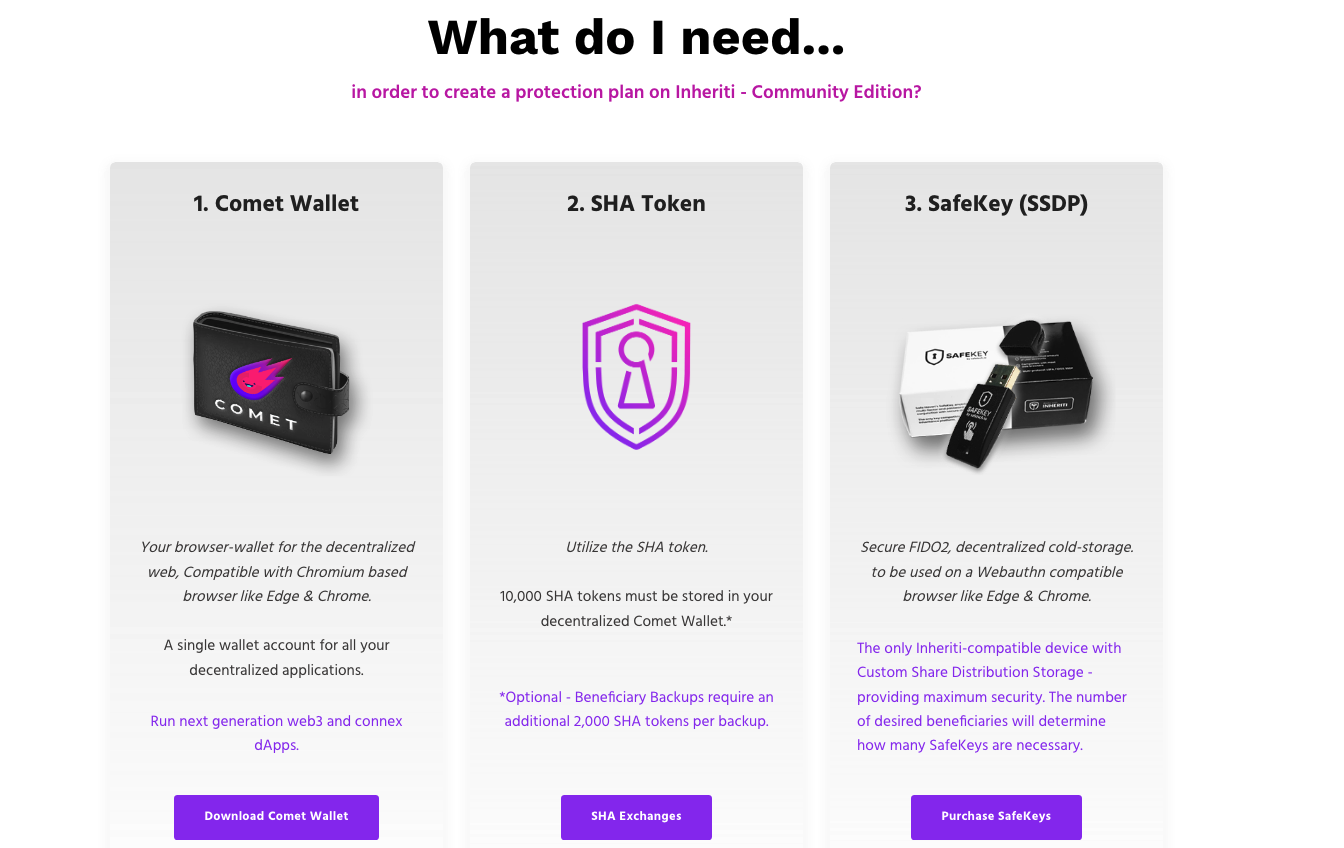Table of Contents
If you’ve spent any time on our site at all, you’ll know that we’re massive advocates of cryptocurrency — not only as a solid investment, but also as a storage of decentralized wealth. However, crypto’s unregulated nature and cryptic access methods leave many unanswered questions for when investors/HODLers kick the bucket.
For those invested in traditional finance assets, structures embedded in national legal frameworks have ensured that their investments are securely distributed to loved/lucky ones. Centralized institutions have the power and authority to access your assets to handover your wealth in accordance with your will or next of kin. In decentralized finance, however, no institution has the right nor power to replicate this process.
It’s an issue that’s not even restricted to crypto. With NFT collections such as BAYCs, which are worth US$1.41 billion in total volume traded, the value of digital assets concerns serious, serious money.
The Quadriga Conundrum
The issue of what happens to your cryptocurrency is not a hypothetical concern either. After all, death is waiting for all of us. When Quadriga’ CEO Gerald Cotten suddenly died in 2018, the crypto world, the Canadian crypto exchange admitted that they were unable to access US$145 million of Bitcoin and other digital assets.
Quadriga was the largest crypto exchange in Canada, leaving the entire crypto community bewildered at the situation. But yet, it somehow made sense. As explored in the Netflix documentary Trust No One: The Hunt for the Crypto King, the missing cryptocurrency was held in QuadrigaCX’s cold wallet in a laptop that only Cotten had access to. Whilst it was certainly an oversight by the company, the reasoning is in line with the entire private crypto-encryption model that we continue to follow today – IE don’t share your private key with anyone, ever.
Read more: “Trust No One: The Hunt for the Crypto King” Reminds Us of the True Value of Any Financial Asset
Whilst some believe Cotten’s death was a hoax as part of an elaborate exit plan to defraud customers, the Quadriga conundrum nonetheless highlights the dangers of sole proprietary access and crypto’s opaque security layers.
Where There’s a Will, There Isn’t Always a Way
Inheritance of any asset is legally dictated through wills, and the same applies for digital assets. Whether you’re the sole owner of a video clip, song, art or NFT, you can legally direct where your prized digital asset will go once you die.
According to the China Will Registration Centre, most of the assets declared in young people’s wills are bank deposits, Alipay, WeChat Pay balances and even accounts for virtual online games.
Writing wills is also becoming a more common practice among younger people. Mr Chen Kai, director of the centre’s management committee, said those born in the 1980s are driven to write wills due to ageing parents and having young children. One will writer was as young as 17 years old, according to the committee.
Digital assets are most popular among the young crowd too – the majority (74%) of cryptocurrency owners today fall between the ages of 25 and 44.
But, whilst crypto users can legally transfer their digital assets through wills, there is no entity to relinquish them to their rightful custodians. Digital assets under Alipay, WeChat Pay and online game developers are easily transferred but cryptocurrency is not.
The difficulty stems from private crypto keys, which once lost or forgotten, cannot be recovered. Those who are entitled to inherit the wallet thereby cannot access it because they simply cannot ask the deceased for the information.
“Most of the time for the assets that we already know and love — your car, your house, your clothes, whatever — that’s handled by law,” crypto estate attorney Pamela Morgan explains. “But with these cryptocurrencies, it doesn’t really matter what the law says if you don’t actually have access to transfer those assets.”
Trusting Centralised Decentralised Entities
It’s not all morbid news for all cryptocurrency holders. Those using mainstream cryptocurrency trading platforms such as Binance and Coinbase can rest assured that the exchanges will hand over their accounts to respective custodians, much like a traditional bank would.
Furthermore, Safe Haven and Casa are two companies that allow users to lock their crypto keys within layers of private keys that can be distributed to several trusted people. Safe Haven’s inheritance solution Inhereti allows users to store portions of secret data across several blockchains. Casa’s Diamond Membership also allows for safe recovery of users’ bitcoins using multisig protocol without the interference of lawyers, so funds are passed on accordingly “when it’s time.”
However, both solutions are not without flaws. Inhereti’s process is overly convoluted. Users are required to establish a Comet wallet, utilize 10,000 SHA tokens, and purchase a Secure FIDO2, decentralized cold-storage device. Meanwhile, Casa’s inheritance product is a byproduct of its elite membership, which costs US$5,000 per year.
Worse still, by entrusting either entity with your cryptocurrency, you’ll be relinquishing control of your decentralised assets to centralised institutions. The process undermines and defeats the entire purpose of holding non-fiat assets, especially for those who feel Coinbase and Binance are already too centralised.

Alternatively, users can take it upon themselves to establish a decentralised strategy from beyond the grave. In a case study highlighted by Vox, one user is implementing a “dead man’s switch” in which his wife is given a hard drive with a unique key. If she uses the key, her husband will be alerted, and if he fails to respond to the notification within a certain amount of time, the hard drive will assume he is dead. His wife will then automatically gain access to the hard drive’s information.
Again, this is a convoluted process which heavily relies on the functionality of said hard drive and unique key. At least to this writer, this strategy doesn’t seem fully secure, especially compared to the concrete legal structures of a will and regular inherited assets.
Trust Your Loved Ones
According to the Cremation Institute, 85% of crypto investors feel uncertain about securing their crypto beyond the grave. The issues highlighted above certainly justify this anxiety.
For now, there are limited options to address the conundrum, but there are a few tangible options cryptocurrency/anti-establishment advocates can take without relying on a third party.
It all comes down to trust, and a wee bit of Walking Dead style doomsday preparation. Yes really.
New York-based certified public accountant and crypto specialist Kate Waltman suggests keeping your cryptocurrency in cold wallets, which are then stored in fireproof lockboxes. Yes really.
Then create physical documents explaining each wallet’s location and how to access it. Distribute these instructions in one or more locations. Ensure that pass keys, user names, seed phrases etc are listed in these physical information documents.
Finally, entrust your to-be-inheriters with the locales of these documents and how to handle the information. Not everyone is clued into crypto, so make sure your next of kin understands what to do with the usernames, seed phrases and passwords.
Yes, it’s extreme… but more extreme than keeping fiat? You decide.










